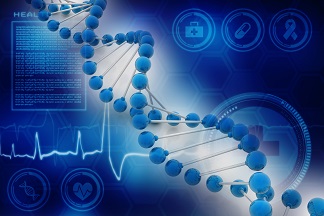Enhancing genetic testing standards across Europe

Related topics
Health Innovation Health, Demographic Change and Wellbeing Belgium Czechia Finland France Germany Ireland Netherlands Spain Sweden United Kingdomdate: 18/08/2015
Project: Genetic testing in Europe - Network for ...
acronym: EUROGENTEST2
See also: CORDIS
The demand for genetic testing has surged in recent years. Thanks to a better understanding of inherited diseases, the renowned Human Genome Project has opened up new possibilities, while innovations in human genetics technology, including the development of genetic sequencing technologies that allow researchers to read DNA at high speed, have also increased demand.
Launched in 2011, the EuroGentest2 project set its sights on harmonising genetic testing and improving the quality of genetic services. Building on the achievements of its predecessor, the EuroGentest Network of Excellence (NoE), it also looked at the various legal, health, ethical and social issues involved, such as insurance cover. The project helped improve the structure of external quality assessment (EQA) schemes, and developed guidelines and an accreditation scheme for genetic laboratories.
“Fifteen years ago, errors in the genetics laboratory were common. This was down to a transition from research to diagnostics, a lack of harmonisation at EU level and the absence of a common goal to provide quality healthcare services,” says EuroGentest2 project coordinator Gert Matthijs of the Katholieke Universiteit Leuven in Belgium.
A snowball effect
Few genetic diagnostic laboratories in Europe were accredited at the beginning of EuroGentest2, but through numerous interactive web courses, the project helped them improve their existing quality schemes and work towards accreditation and certification. Some 700 labs applied for accreditation over the course of the project and still more are applying today.
“There is a snowball effect with more and more labs wanting to be accredited. This is down to a kind of peer pressure – if their competitors are accredited, they should be too,” explains Matthijs.
EuroGentest2 has built on the achievements of its predecessor by further improving the sustainability of EQAs – the schemes used by laboratories to measure their performance against that of their peers. Working together with the European Molecular Genetics Quality Network (EMQN) and other key stakeholders, the project partners produced standard quality reference materials and templates for use in EQA schemes.
To improve access to genetic testing, the project also further supported the Orphanet database launched under the EuroGentest NoE. Every day, some 20 000 people log on to the database, which gives an overview of all laboratories offering genetic testing. Two thirds of users are healthcare professionals.
A need for counselling
While having a genetic test can be very helpful, it may also be daunting. And if the results are not what the patient was expecting or hoping for, their impact can be traumatic. Recognising this, EuroGentest2 published recommendations for genetic counselling that have since been approved by both the National Human Genetic Societies and the European Society of Human Genetics.
In addition to the emotional impact, the results may also have social or financial consequences. And while a test may provide much-needed information on a genetic disorder, there is unfortunately a lack of treatment strategies for many of these conditions once they have been diagnosed. EuroGentest2 therefore developed a set of genetic test evaluation tools. Known as ‘Clinical Utility Gene Cards’, they clearly assess the risks and benefits of genetic testing per disease, offering quick and accurate guidance to clinicians and geneticists.
EuroGentest2 members were actively involved in the revision of the ISO 15189 quality management system for medical laboratories – the standards that a lab must meet in order to be accredited. They also contributed to the discussion on the in vitro diagnostic (IVD) regulation, which deals with the manufacture and use of diagnostic test kits in Europe. Their input has helped policymakers draft legislation and ensures that the needs of health professionals for European guidelines and regulations are met.
